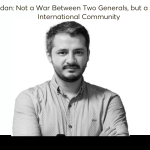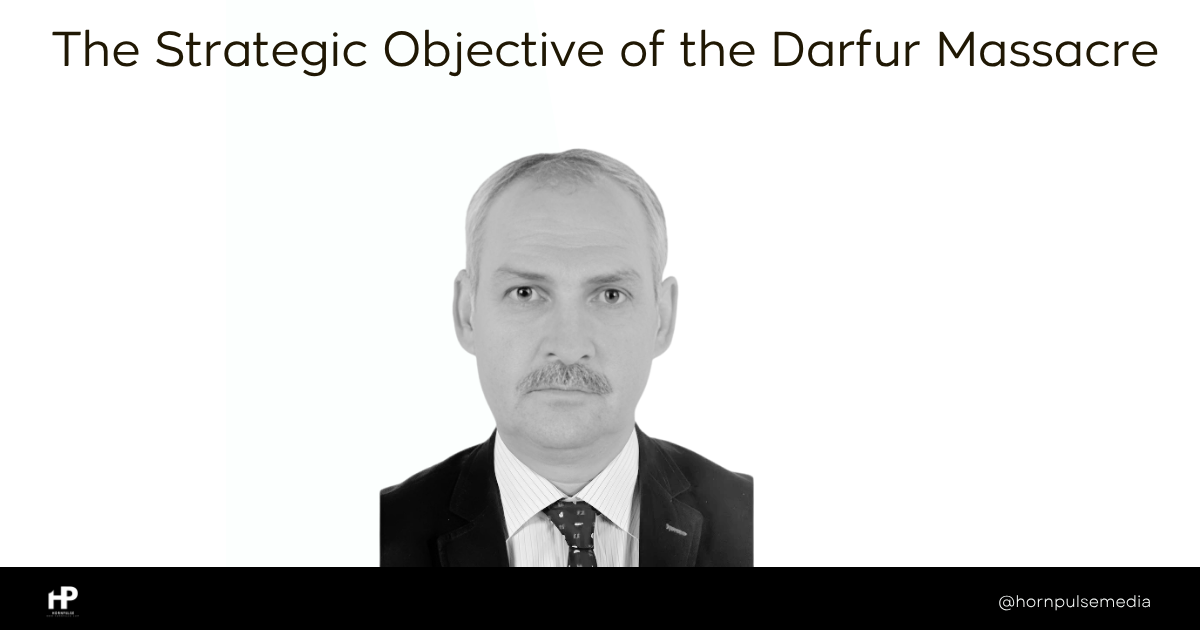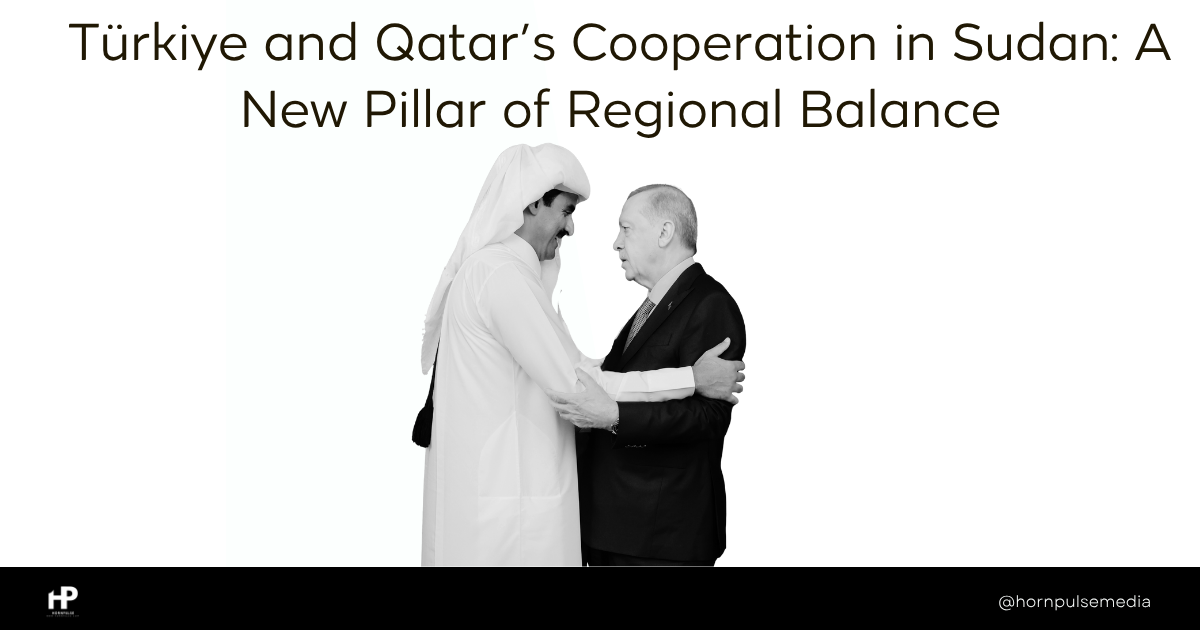
Turkish Consul General in Hargeisa Meets Somaliland President to Discuss Bilateral Cooperation
November 4, 2025
Post-Fasher Sudan: Not a War Between Two Generals, but a Moral Test for the International Community
November 4, 2025There is no doubt that the massacre and genocide taking place in Gaza is the greatest massacre of the century. However, the bloody events in Darfur — which have remained in the shadow of the atrocities in Gaza and have not received sufficient attention from the global public — have also produced equally shocking consequences. In these events, residential areas were plundered, thousands of people lost their lives, and millions were displaced from their homes. The Darfur incidents, ignored by a world media focused on Gaza, have only recently come to the agenda due to the intensified clashes in El Fasher and the city’s eventual fall into the hands of the rebels. Based on the information we have received from our friends in Sudan and from reports in domestic and international media, it appears that the army units and their supporters — who had been resisting the paramilitary forces surrounding El Fasher, the capital of North Darfur and a city of strategic importance — have been forced to withdraw. Reports indicate that the heavily armed militias of the Rapid Support Forces (RSF), who captured El Fasher, have plundered the city and massacred many innocent people without distinguishing between children, the elderly, or women.
What Is Happening in Sudan Is Part of a Long-Term Plan
The process unfolding in Sudan should not be viewed merely as a struggle for power. The period that began with the overthrow of the al-Bashir government in 2019 and continues to this day cannot be understood solely through internal dynamics or economic causes. The process that led to al-Bashir’s removal — justified by economic and political reasons — was in fact part of a long-term international plan fueled by external intervention. As a result of this plan, Omar al-Bashir’s government was toppled, and the country has been gradually brought to its current situation. Therefore, it is impossible to truly understand today’s events without considering their historical and geopolitical background.
Reasons Behind the Overthrow of al-Bashir
The current events in Darfur are part of the coup process that began with al-Bashir’s removal from power. The main aim of the forces behind al-Bashir’s downfall was to create chaos in the country and completely end the religious governance system that had existed since 1983. Since that year, Sudan had transitioned to an Islamic form of government — which was further strengthened during al-Bashir’s rule. Sudan’s support for efforts to spread Islam further south in Africa, its clear pro-Palestinian stance, its preference for alignment with China in global competition, and its advanced relations with Turkey were among the main reasons why al-Bashir’s regime became a target.
The ultimate goal of the powers that orchestrated al-Bashir’s fall was to impose a deep secular transformation across the country and eliminate the religious-political mindset that had become widespread. This plan was implemented step by step. In the first phase, the southern region of Sudan, populated mostly by indigenous Africans, was separated in 2011 and became an independent state (South Sudan). However, this separation was not deemed sufficient, and efforts to further weaken Sudan by creating new divisions and chaos continued relentlessly. The country was crippled by economic sanctions, and al-Bashir and some of his officials were tried in absentia by the International Criminal Court, which issued arrest warrants for them.
The coup process that began in 2019 was accompanied by systematic efforts to weaken and destroy the religious values of Sudan’s largely conservative population. After the coup, the conservative segment — particularly members of the Islamic Movement — was marginalized and excluded from political life. The Hamdok government, appointed after the coup, gradually altered religious legislation and shut down many religious institutions. This policy also led to a noticeable shift in foreign policy. During Hamdok’s tenure, Sudan adopted a hostile attitude toward Turkey, which had a conservative government.
Countries such as the UAE, Saudi Arabia, and Egypt — which perceived Sudan’s Islamic governance as a threat to their own regimes — as well as the United States and Israel, openly supported this process. Israel and the U.S. in particular exploited Sudan’s dire economic situation, pressuring the country into normalization with Israel by offering promises such as removal from the list of state sponsors of terrorism and economic aid.
Sudan had long been a symbol of the active anti-Israel bloc in the Palestinian issue. In 1967, at the Arab League Summit in Khartoum, Sudan became known as the “Three No’s” country — “No peace, no recognition, no negotiation with Israel.” Through pressure and manipulation by Israel and the U.S., with the cooperation of Gulf countries, Sudan was forced to abandon this stance. However, internal political imbalances and ongoing conflicts prevented the government from making substantial moves toward normalization.
The Strategic Importance of What Is Happening in Darfur
Today’s conflicts in the Darfur region are, on the surface, seen as a power struggle between two military factions that ousted al-Bashir. On one side stands General Abdel Fattah al-Burhan, head of the Sovereign Council and commander of the army; on the other, the commander of the Rapid Support Forces (RSF), Mohamed Hamdan Dagalo, also known as “Hemedti.” Both Burhan and Dagalo were influential commanders during al-Bashir’s rule. After toppling al-Bashir, they established the Sovereign Council, with Burhan as chairman and Dagalo as deputy. However, Dagalo was not content with this position; using his economic power, he strengthened his military capacity with the aim of becoming the country’s sole authority.
Dagalo is known to have operated gold mines in the Darfur region and to have earned enormous revenues through trade supported by the UAE. Burhan, seeking to rein in Dagalo’s growing independence, attempted to integrate the RSF into the regular army to reduce its influence. Realizing this would end his power, Dagalo resisted. The dispute escalated into armed conflict in 2023. After prolonged fighting across much of the country, the RSF lost influence outside Darfur and concentrated its forces there. Having gained control of all Darfur states except El Fasher, the RSF launched major assaults last week and, after nearly two years of siege, captured the city — thereby consolidating control over all of Darfur.
El Fasher, the capital of North Darfur, holds a key role in this struggle. The region is the most suitable area for the RSF to declare an independent state, and El Fasher was historically the capital of the Darfur Sultanate — which existed as an independent kingdom apart from Sudan. The last sultan, Ali Dinar, supported the Ottoman Empire during World War I and was martyred in 1916 while fighting the British. Given its historical independence, Darfur remains psychologically predisposed to secession. Thus, capturing El Fasher was crucial for the possibility of reestablishing Darfur as a separate state. Realizing he could not take control of all Sudan, Dagalo concentrated his efforts on Darfur and focused all his military power on seizing El Fasher. Analysts frequently assert that the RSF intends to declare Darfur an independent state. Indeed, separatists have already declared a government in Kenya for this purpose, although it has gained little recognition.
Experts claim that the United Arab Emirates, along with its backers the United Kingdom and the United States, are behind all these developments. Media outlets and social networks report that British-made weapons supplied via the UAE have been captured. It is clear that the RSF could not have achieved such military strength without external support. The silence of Western countries — especially those like the U.S. and the U.K., which usually react swiftly even to minor incidents — is seen as further proof of their complicity.
It appears that the chaotic environment desired by Western powers in Sudan has now been realized and will likely continue for a long time. Even if the RSF has seized control of Darfur, it will find it difficult to establish a lasting government there. The RSF will continue to face pressure from both the federal government and the local population. The federal government will not easily relinquish Darfur. Moreover, local armed groups — some of which now fight alongside the army — that once rebelled under the al-Bashir regime harbor deep resentment toward Dagalo and the RSF due to the atrocities previously committed by Janjaweed militias in the region.
Groups such as the Justice and Equality Movement led by Jibril Ibrahim, the Sudan Liberation Army led by Arko Minnawi, and the Sudan Liberation Movement under Abdul Wahid al-Nur will never accept Dagalo’s authority. Unfortunately, this means the region is condemned to a long-term state of chaos.
Prof. Dr. Enver Arpa is a Turkish academic known for his work in political science, international relations, and Africa studies. He has published numerous analyses focusing on geopolitical issues, particularly those involving the Islamic world and African politics.


